By using our site, you agree to our cookie policy.
How to sell your house without an estate agent
So you’re thinking about selling your house without an estate agent?

You might be trying to avoid rising estate agent fees, or feel like you could do the job better (let’s just say it…you’re a Virgo). Whatever the reason, we’re here to reassure you that it is possible. We’ll ask the question “what would an estate agent do?” (WWAEAD?) in order to help you get a slick, professional sale, without the price tag.
1) Finish any home improvements
WWAEAD? At the early stages of the selling process, your estate agent would give you their professional opinion on the aesthetic of your property. They would tell you if they believe you’d get more (and better) offers if you redid your bathroom, replaced your cabinet doors in the kitchen, or simply added some soft furnishings to your living room. It’s hard to be objective on a property when you’re the owner, and possibly the resident too. So in lieu of this professional opinion, try to have some distance from the space and look at it with fresh eyes. Could the windows do with a clean? Do you need to stop procrastination and change the broken lightbulbs? Or could it even be a small thing like buying fresh flowers for the kitchen table.

If you’re struggling to get objectivity, why not have a friend come over and offer their advice? They may notice things that you haven’t been alerted to.
2) Deciding on a price
An online valuation is a good guide, but it’s not 100% watertight. You can use this online valuation tool to get a rough ballpark of the value of your house. So where do you go from there?
WWAEAD? Estate agents take several factors into consideration when deciding what their recommendation would be for your asking price. Firstly they will consider the overall state of the housing market - if the market is very strong, your house price will be pushed up, if the housing market is wavering, then the price will reflect that.
Next, they would consider houses sold in the local area, preferably of the same style (same number of bedrooms, same original features and so on). You can check lots of this data on The Land Registry.
Then your agent’s attention should turn to your property, and its unique assets. Whilst you won’t necessarily have the same insider market knowledge as an agent, your advantage is knowing your property very well. What are the perks? What are the drawbacks? Consider all of these points when deciding on the price. Some pros would be: Proximity to public transportation Green space Good schools Off-road parking A quiet and safe neighbourhood Also consider some factors that may make the value of the property less than similar properties on the market: Close to a loud train station Not north facing (often people want this as it ensures maximum sunlight)
3) Marketing (description and photos)
A property for sale with bad photos is like a recipe in a recipe book with no pics. You’re not going to make the recipe, you’re not going to buy the house. There are some basics to bear in mind - daylight, clear and crisp photos, a clean and tidy house - but there are also specific things to include with specific properties. If the house is in a rural area you definitely want to include the rural surroundings - whether that’s the garden, the lane leading down to the house, the land included in the property or any other unique and appealing features. If the house is very modern, make sure to focus on the amenities. Why take a photo of the kettle when it won’t be included in the sale, when you could include a photo of the jacuzzi hot tub and on-site gym. Don’t overlook positive attributes just because you’re accustomed to them! Whilst iPhones have good cameras, you may be better off employing a photographer to take the photos and edit them. They will be able to ensure great angles, bright lighting and continuity within the set.

4) Listing the property
If you don’t have a buyer already in mind (perhaps someone has reached out to you personally) then you’ll want to get your property listed. This means getting it onto platforms which will advertise it publicly as available for sale. This will then hopefully lead to viewings and a sale.
Estate agents should try to get as many eyes on the property as possible (this takes us to WSAED - what should they do). Having a large breadth of viewership maximises your chance for getting viewings and offers. You will want to ensure you can get this yourself.
A clear drawback to listing your property without an agent is that you won’t be able to put it on Zoopla or Rightmove, as they only accept advertisements from agents. Alternative places to list the property could include: Twitter Local Facebook groups “For sale by owner” sites such as The House Shop The local paper Ways you shouldn’t advertise: The town crier Carrier pigeon By sending out “positive vibes"

5) Viewings begin
Firstly, remember you don’t have the agent doing provisional scamming or time-wasting checks. For safety reasons we would always recommend having someone else in the house if you’re doing an in-person property viewing.
An alternative to IRL viewings is doing them online, like via Zoom for example. It’s unlikely you’d sell without any visits from the buyer or their representative, but it could mean you do less viewings throughout the process. You may also want to consider uploading videos or virtual viewings (though it costs money to have these made, unless you’re a tech wiz) to your listing, so people feel they have a sense of the place prior to viewing. This will remove some time-wasters and hopefully leave you only with those really considering putting an offer.

Remember your house needs to be looking spick and span for the viewings, so schedule the appointments when you’ve had a chance to have a tidy up. I.e. not on a Sunday morning when you haven’t had a chance to stack the dishwasher from last night’s rager.
At Strike you can either liaise directly with prospective sellers through our hub, or your agent is happy to arrange your viewings for you. We like to think it’s quite a good balance but if you’d prefer to go it alone, that’s fine too!
6) Negotiating the price
You’re dealing with a lot of money here, so this shouldn’t be based on any guesswork. Arm yourself with all the information you need, as well as knowing what your limits and boundaries are. Things to know: What terms are you willing to accept? (Like do you only want a cash buyer, do you want a chain-free offer?) How much below the asking price will you accept? If the buyer asks for things to be included (e.g. the sofa, the curtains, or the “white goods” - which means the washing machine and fridge etc.) are you willing to do this? And would you want more money for these things? By when do you need to complete the sale? If you have a great offer, but they don’t want to exchange for 6 months, are you willing to wait? Once you know your limits and boundaries, you’ll be going in knowing where you’re willing to be accommodating, and what are non-negotiables. If you get an offer you’re not happy with, never feel obliged to take it. Because you don’t have an agent, you won’t have a middle man and will have to do these negotiations yourself. Remember to keep negotiations cordial and turn down offers politely, in case you do decide to accept them later down the line. Here at Strike, we want to take all this off your hands: from negotiation to sales progression. This way, you can avoid any sticky conversations, safe in the knowledge that we’ll get you the best price for you.
7) Accepting the offer
Decided you’re happy with the offer? Great news. You can tell the buyer however you like, usually verbally and then in writing. Remember that nothing is locked and loaded until you’ve exchanged, though. Prior to exchanging, the buyer may want to get a surveyor to look around the house, at which point they may request a renegotiation (say, if they found some previously undiscovered damp). This isn’t uncommon so don’t worry, but again, decide what your boundaries are by research, and then stick to them.
8) Exchanging - conveyancers or solicitors take the reins
Here it’s more about “what will the solicitors do” rather than WWAEAD. Your lawyers or conveyancers will take over this section of the sale. During this period they’ll deal with the buyers’ lawyers in order to exchange signed contracts. Though the lawyer will be taking the reins, an estate agent is a great middle man to push the chain along and keep up good, smooth communication between parties. It is also sometimes helpful to get recommendations for a lawyer through your agent. Without an agent make sure you find the right people by doing good research and taking recommendations from local friends.
9) Completing
You’ve exchanged! Now you’re ready to book the moving vans and start planning your drive into the sunset (or the pouring rain, if you’re in the UK). You’ll plan a completion date, and this will be the point where the money is transferred to you and the keys are handed over. The agent wouldn’t have much involvement during this bit and your lawyer will set your completion date, so there won’t be much for you to do, apart from packing thousands of odd socks, some tiny shoes that haven’t fitted any of the kids in 5 years and a photo of the neighbour’s cat (is it just us or does moving house make you sentimental to the point of madness? Just us? Ok cool).

So on balance - do we need estate agents?
Like all great things (minus ‘mankinis’ and the film ‘Sharknado’) if we didn’t need them, they wouldn’t exist (we’re not sure if this is a watertight theory, don’t overthink it). Essentially we think: you can certainly embark on the selling process without an estate agent, but an agent eases the burden. One instance where you might not need an agent would be if you have already secured a private offer (perhaps a letter through the door from an admirer, a neighbour looking to knock through to your house, or a downstairs resident looking to buy your flat for their mother to move into - there are lots of reasons). We believe that though estate agents do cost money, they will hopefully save you time (which is particularly important if you would have to take time off your job to do house-selling admin), and secure you a better offer in a more timely manner. Strike offers a totally free estate agent service, which we think offers the best of both worlds if you’re on the fence about whether or not you really need an agent. Then, if you decide you want some of our paid-for extras (like agent-hosted house viewings or professional photos etc.) you can add them on. You check out a really breakdown of our services, fees and “frees” right here.
Strike feel free
Copyright © Strike Limited 2024

